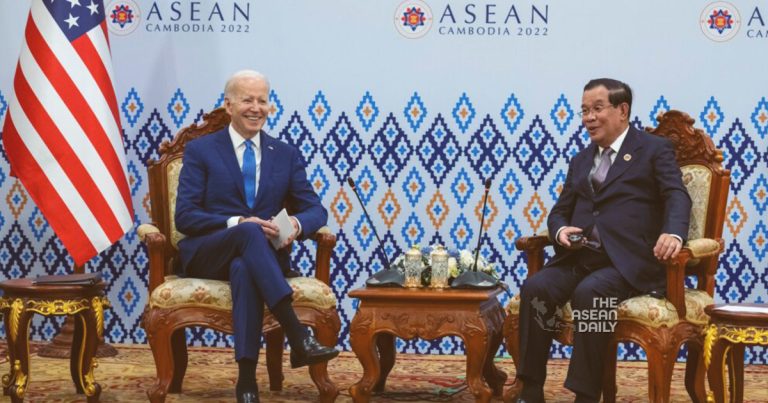10-8-2023 (WASHINGTON) President Joe Biden’s potential absence from the upcoming summits with Southeast Asian leaders in Jakarta next month has sparked speculation and raised questions about the United States’ commitment to a region that holds significant importance in its efforts to counter China’s growing influence.
While President Biden is scheduled to attend the G20 summit in India on September 9-10 and has expressed plans to visit Vietnam, a crucial emerging partner in Southeast Asia, his attendance at the September 4-7 summits organized by the Association of Southeast Asian Nations (ASEAN) is facing uncertainty.
Multiple sources have suggested that Biden is unlikely to travel to Indonesia for the ASEAN summits. An anonymous source familiar with the matter stated that Biden would not be present in Indonesia, and a Washington-based ambassador from an ASEAN member nation reportedly conveyed that Indonesia had been informed of Biden’s potential absence on Monday. Other sources, citing White House officials, have described Biden’s attendance as “unlikely.”
In response to queries regarding President Biden’s participation, a senior White House official informed Reuters on Tuesday, “We’re still working on it … we’ll probably have more to say about it soon.”
Requests for comment from White House spokespersons remained unanswered at the time of reporting. It is noteworthy that President Biden’s official schedule for the Asia visit is subject to change until it has been formally announced.
The prospect of Biden not attending the Jakarta summits has caused concern among ASEAN diplomats, given the emphasis his administration has placed on fostering strong ties with the region. Notably, Indonesia rescheduled the ASEAN summits, which typically occur in November, to September to accommodate a potential visit by Biden before his G20 commitment.
Sources have indicated that Vice President Kamala Harris is expected to represent the US in Biden’s place if his absence is confirmed. Harris, the first Asian American vice president, has prior experience in conducting diplomacy within the region.
Past Disappointment and Regional Implications
President Biden’s potential absence follows his earlier decision to cancel a visit to Papua New Guinea and Australia due to his focus on resolving the US debt ceiling crisis through negotiations with lawmakers. This move had already caused disappointment in the region.
Policy analysts suggest that another no-show by Biden, who attended ASEAN meetings in Cambodia in November, could raise doubts about the US administration’s commitment to the region. Murray Hiebert, a senior associate at the Center for Strategic and International Studies, noted, “It will be viewed as another letdown by the region.” He further expressed concerns that such a decision could signal a regression in US engagement with Southeast Asia.
The absence of President Biden’s Republican predecessor, Donald Trump, from regional summits for three consecutive years had been viewed unfavorably by ASEAN members. This absence was seen as an opportunity for China to expand its influence in the region. In contrast, former President Barack Obama maintained consistent engagement with ASEAN, attending most US-ASEAN and East Asia summits during his tenure.
President Biden’s decision regarding the Jakarta summits is keenly watched by policy experts and regional stakeholders, as it has broader implications for US engagement and influence in Southeast Asia during a pivotal period of geopolitical realignment.




